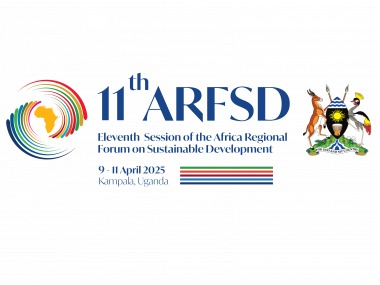UN, AU collaborate for sustainable dev’t in Africa
Addis Ababa, April 9, 2025 (FMC) – The United Nations and the African Union (AU) are creating synergy in implementing the African Union’s Agenda 2063 and the UN Sustainable Development Goals for Agenda 2030, described as “Two agendas, One framework.”
To cement this initiative, a meeting of major development partners in Africa was held under the theme “Accelerating Transformation through the Implementation of Agenda 2063’s Second Ten-Year Implementation Plan (STYIP) alongside the 2030 Agenda for Sustainable Development: The Role of the RC System in Africa.”
It was organised jointly by the AU, the United Nations Economic Commission for Africa (ECA), the United Nations Development Programme (UNDP), AUDA-NEPAD, and the UN Development Coordination Office (DCO) under the aegis of the Technical Working Group of The Second Ten-Year Implementation Plan (STYIP).
The Second Ten-Year Implementation Plan is a strategic framework for Africa’s development, outlining goals for 2024-2033 within Agenda 2063, which also aligns with the UN Sustainable Development Goals (SDGs) Agenda 2030.
To ensure synergy in implementing the two frameworks, a technical working group comprising the AU, ECA, UNDP, AUDA, and other UN agencies has been developing a common implementation framework to guide the execution of both agendas under the STYIP at the national levels through the national development plans of African member states.
The side event, therefore, aimed to enhance the collaboration among the UN, AUC, and TWG in the implementation of the Second Ten-Year Implementation Plan.
It also sought to strengthen commitments for both Agendas at the country level, define strategies for Second Ten-Year Implementation Plan domestication, ensure alignment with STYIP Moonshots and SDGs in National Development Plans (NDPs).
It also aimed to ensure the integration of the Second Ten-Year Implementation Plan into the United Nations Country Teams’ (UNCTs) Common Country Analyses (CCAs) and Cooperation Frameworks (CFs) to facilitate more effective collaboration between the UN and AU.
Consequently, this accounted for the presence at the meeting of all the UN Resident Coordinators, who are UN officials responsible for ensuring cooperation among agencies at the country level to support local development goals.
Addressing the opening ceremony of the event, Botho Kebabonye Bayendi, Director, Office of Strategic Planning and Delivery, AUC, indicated that the reality at the country level called for complementarity between the UN system and the African Union because both institutions aim for the same development indicators.
Said Adejumobi, Director of Strategic Planning, Oversight, and Results Division (SPORD) at UNECA, observed that the convergence rate between Agenda 2030 and Agenda 2063 is about 80 percent.
This overlap required collaboration between both institutions to achieve their shared development goals effectively.
He announced that the UN system would leverage its presence in all countries to support the implementation of the Second Ten-Year Implementation Plan within the “Two Agendas, One Framework” concept.
Yacoub El-Hillo, DCO Regional Director, lauded the partnership between the AU and the UN, which led to the introduction of the college-to-college strategic approach, a collaborative framework between the AU and the UN to enhance cooperation and coordination in various areas, including peace and security, development, and humanitarian affairs with the potential to benefit approximately 201.5 million Africans in the coming years.

